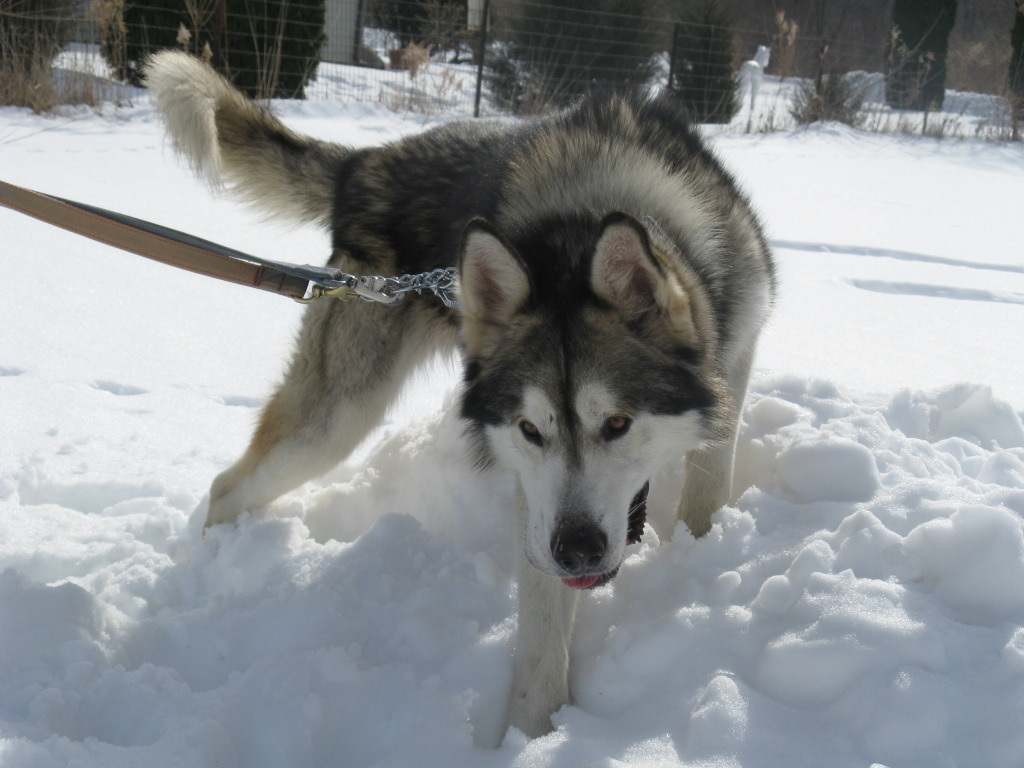Training Your Foster
Many people worry about taking in a dog who has not had training before. The truth of it is that any dog, young or old, will go through a learning curve every time they move to a new house or stay with a new family. It is your job to decide how much, or how little, to work with them. However, dogs with more manners are easier to adopt. Not all of our applicants have had previous dog experience, and learning how to earn respect from a malamute is a learning curve of its own. For these applicants, we try to match them with dogs that have "been there, done that" and know the routine of how to behave (as much as any malamute chooses). :)
Potty TrainingIf your foster is in your house, you would probably make this your first priority.
Here are some tips:
|
|
Basic TricksIs this needed for adoption? No. But it is a great way to open up communication with your foster and to teach them that it's FUN working with people. These are some tricks that are easy to learn and can be useful while the foster stays with you.
|
Basic MannersEveryone has a different opinion on what sort of behaviors are acceptable and unacceptable. But here are some things that help improve the adoptability of a dog.
Some other things to consider are: Will the adopter want the dog on the couch or bed? Will the adopter want to use a crate while at work? Sometimes it's best to give malamutes more structure in the beginning and then allow them more freedom as they learn the dynamics of your relationship. Remember, they are smart, and they will toe every line you set. If you don't give them expectations, they will walk all over you with a huge grin on their face. |
More Serious Stuff
Some dogs occasionally have more serious behavior issues. Our goal is to give you a dog within your own capabilities, but if a problem isn't known until after a dog is in a foster home, we want you to contact a member of our board. They can provide you with tips on how to work with the issue.


